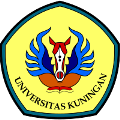Digital Natives and the Advantages of their Generation to the Business World
Abstract
The divide between individuals who were brought up with technological devices (digital natives) and those who possess not (digital immigrants) is getting wider as a result of the ongoing advancement of technological devices. However, this gap is present in the business sector today. As a result, this study investigates the traits and actions of digital natives in the business world. This study used an analytical approach, depending on secondary data and content analysis to interpret the data that was collected. According to the study's conclusion, businesses that recognise and value the potential of digital natives will be more competitive in the long run. In order to accomplish this, managers must interact with this generation using novel, frequently nuanced techniques and behaviours. This does not imply that everything businesses have done in past decades to attract as well as retain talent is no longer relevant. However, we must expand our toolkits and alter our work cultures and beliefs.
Keywords
Full Text:
PDFReferences
Goode, J. (2010). The digital identity divide: how technology knowledge impacts college students. New Media & Society, 12(3), 497 – 513.
Hargittai, E. (2010). Digital natives? Variation in Internet skills and uses among members of the net generation. Sociological Inquiry, 80(1), 92 – 113.
Helsper, E., & Eynon, R. (2009). Digital natives: Where is the evidence? British Educational Research Journal, 2, 1 -18.
Judd, T. (2018). The rise and fall of the digital natives. Australasian Journal of Educational Technology, 34(5), 99 - 119.
Karsten, J., Rafael, M., & Stephanie, W. (2011)..Managing digital natives: Opportunity or challenge? Tell me when you were born and I’ll tell you who you are. The European Business Review, 2, 66 – 69.
Kvasny, L., & Keil, M. (2006). The challenges of redressing the digital divide: a tale of two US cities. Information Systems Journal, 16, 23 - 53.
Okereka, O. P., Orhero, A. E., & Okolie, U. C. (2023). Factors influencing organisational commitment and adaptive work behaviour of the digital native employees in broadcasting stations in Delta State, Nigeria. Ianna Journal of Interdisciplinary Studies, 5(1S3), 252 – 265.
Prenksy, M. (2001). Digital natives, digital immigrants. On the Horizon, 9(5), 1 - 6.
Sadiku, M. N. O., Chukwu, U. C., Ajayi- Majebi, A., & Musa, S. M. (2022). Digital Natives in Business. International Journal of Trend in Scientific Research and Development, 6(3), 932 - 938.
Sadiku, M. N. O., Chukwu, U. C., Ajayi- Majebi, A., & Musa, S. M. (2021). Digital economy: A primer,” International Journal of Trend in Scientific Research and Development,.5(6), 713-719.
Sadiku, M. N.O., Adebowale E. S., & Musa, S. M. (2017). Digital natives. International Journals of Advanced Research in Computer Science and Software Engineering, 7(7), 125 – 126.
Tustin, D. H., Goetz, M., & Basson, A. H. (2011). Digital divide and inequality among digital natives: A South African perspective. African Journal of Business Management, .6(31), 9140 - 9150.
Wang, Q. E., Myers, M. D., & Sundaram, D. (2013). Digital natives and digital immigrants: Towards a model of digital fluency. Business & Information Systems Engineering, 6, 409 - 419.
DOI: https://doi.org/10.25134/logika.v15i01.9829
Refbacks
- There are currently no refbacks.
Logika : Jurnal Penelitian Universitas Kuningan
ISSN 2085-997X (print), ISSN 2715-4505 (online)
Organized by Faculty of Law, Universitas Kuningan, Indonesia.
Website : https://journal.uniku.ac.id/index.php/logika/index
Email : [email protected]
Address : Jalan Cut Nyak Dhien No.36A Kuningan, Jawa Barat, Indonesia.

Logika is licensed under a Creative Commons Attribution 4.0











